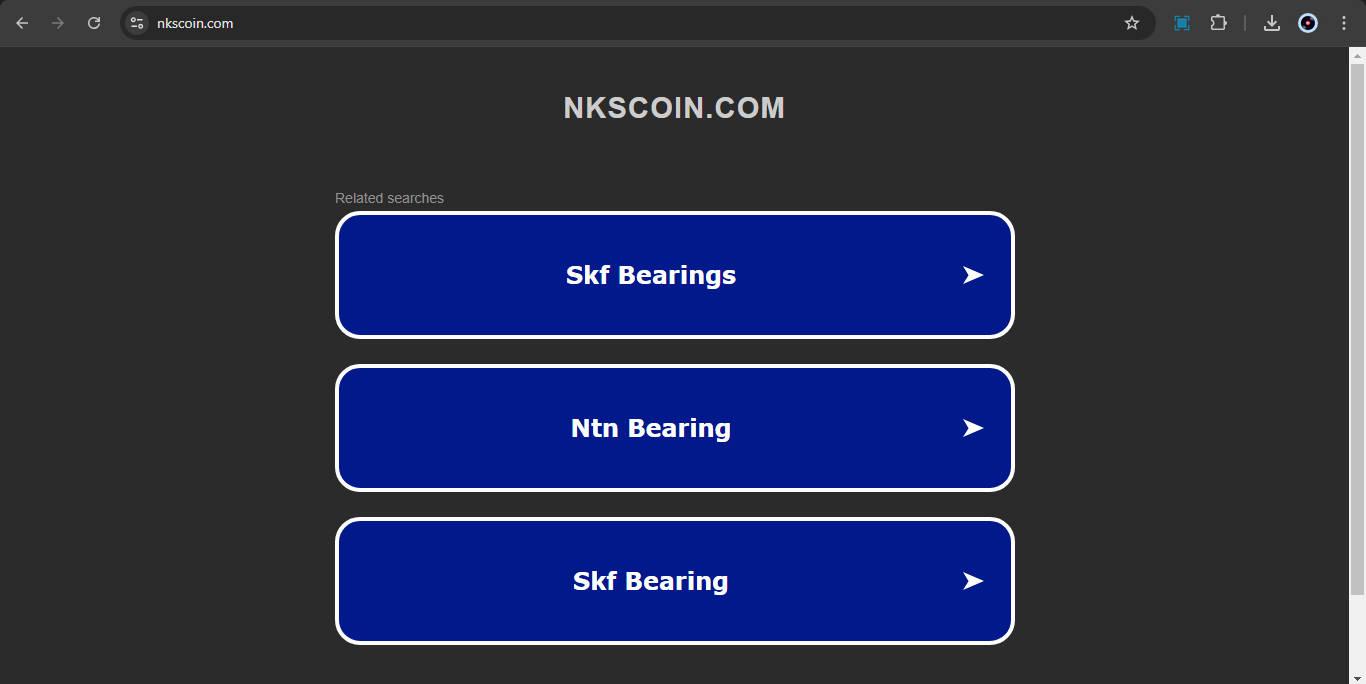- This topic has 0 replies, 1 voice, and was last updated 1 year, 3 months ago by .
Victim lost $6,587 in a Fake Investment and Withdrawal Scam
URL of Scam: nkscoin.com
Type of Scam: Fake Investment Platform / Withdrawal Scam
Amount Lost: $6,587 USD (via 0.38791 BTC)
Victim Description:
The victim attempted to invest and make a profit through the platform nkscoin.com. After sending 0.38791 BTC (worth approximately $6,587 USD), the victim was shown a balance on the platform indicating their initial investment, along with what appeared to be profits. However, when the victim tried to withdraw their funds, they were informed that additional fees were required to complete the withdrawal. Despite complying with these requests, the victim was still unable to access their funds. The platform continued to demand further fees, making it clear that the funds would remain inaccessible unless more money was sent. This is a common tactic in cryptocurrency scams, where users are tricked into sending more funds under the promise of receiving their original investment and profits, which never materialize.

Scam Domain Details:
Domain Name: nkscoin.com
Registrar: OwnRegistrar, Inc.
Registered On: November 22, 2022
Expires On: November 22, 2024
Updated On: November 23, 2024
Status: ok
Name Servers: ns1.cr25.managedns.org, ns2.cr25.managedns.org
Domain Status:
The domain nkscoin.com was registered in November 2022 and is set to expire in November 2024. The domain is still active and appears to be under normal status (ok), indicating it is operational. The name servers associated with the domain are managed by managedns.org, a service used to manage DNS for websites.
Open-Source Intelligence Analysis: Key Details of nkscoin.com Scam
Scam Overview:
The victim invested 0.38791 BTC (approximately $6,587 USD) into nkscoin.com, a platform that promised profits from cryptocurrency investments. After the victim’s funds were deposited, they were shown a balance on the platform that included both their initial investment and profits. However, when attempting to withdraw the funds, the victim was told that additional fees were required to release the funds. This is a common scam tactic, where platforms encourage users to deposit more funds under the pretense of facilitating a withdrawal, but the funds are ultimately never released.
Domain Details:
The domain nkscoin.com is registered through OwnRegistrar, Inc. and is hosted under the name servers ns1.cr25.managedns.org and ns2.cr25.managedns.org. This domain remains active and operational, with no indication that it is being shut down or investigated at this time.
Status:
The platform’s behavior aligns with common withdrawal scam tactics, where the victim is shown a fake account balance but cannot access their funds unless more deposits are made. This creates a fraudulent cycle that aims to extract more funds from the victim.
Recommendations:
Report the Scam: Victims should immediately report the scam to local authorities, the Internet Crime Complaint Center (IC3), and CryptoScamDB.
Track Cryptocurrency Transactions: Use blockchain explorers to trace the payments made to the scam addresses (
 bc1qtfta5n3l5d2yk2aetrfp29t09gmmkaxysyr8r2
bc1qtfta5n3l5d2yk2aetrfp29t09gmmkaxysyr8r2 
and bc1qxf8p23hdwpp0ss82eynyjd7ztnmy4n4cc785g3) to potentially identify the scammers behind the fraud.
Consult Legal Experts: Given the loss of $6,587 USD, the victim should seek legal advice from experts specializing in cryptocurrency fraud recovery.
Cease Communication with Scammers: Victims should immediately stop engaging with the platform and its representatives to avoid further exploitation.
Monitor Accounts: It’s crucial to monitor both the cryptocurrency wallet and any linked financial accounts for any further unauthorized activity or attempts to withdraw more funds.
Conclusion:
The victim lost $6,587 USD to the fraudulent platform nkscoin.com, which showed a fake account balance and demanded additional fees to release the funds. The scam platform continues to operate, and the victim’s funds remain inaccessible unless further payments are made. Victims should take immediate action to report the fraud, track transactions, and seek recovery through legal channels.
- You must be logged in to reply to this topic.